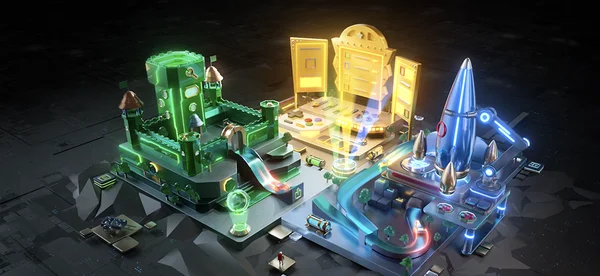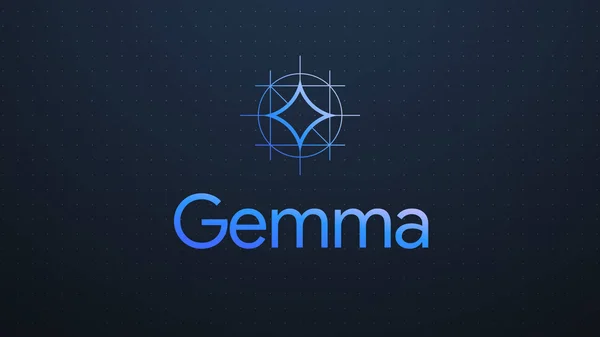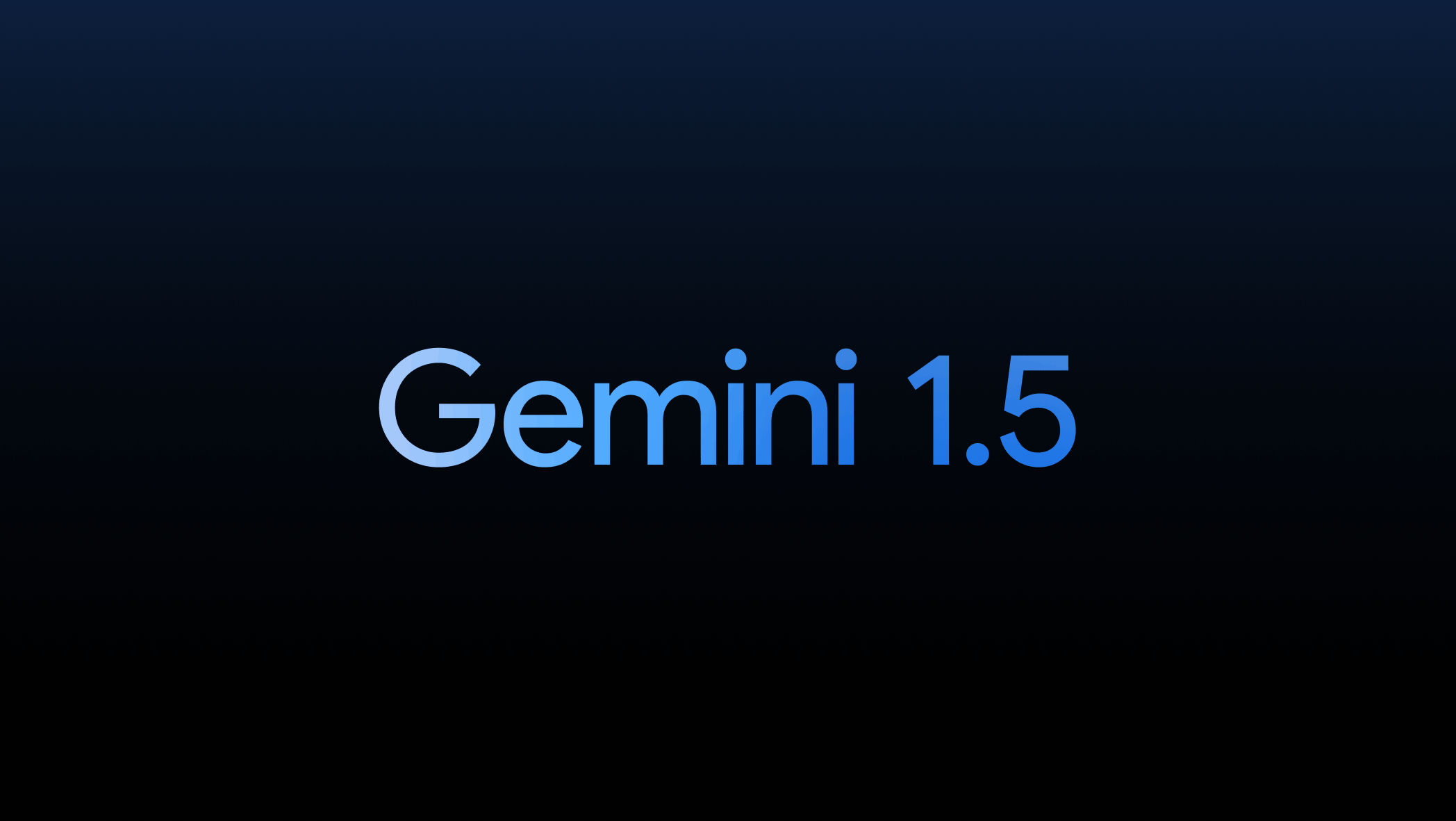 Stay tuned for our Google I/O 2024 announcements.
Stay tuned for our Google I/O 2024 announcements.
I/O 2024
 Stay tuned for our Google I/O 2024 announcements.
Stay tuned for our Google I/O 2024 announcements.
 Stay tuned for our Google I/O 2024 announcements.
Stay tuned for our Google I/O 2024 announcements.
 We’re celebrating five years since the launch of the .dev top-level domain with five exciting .dev websites and a special offer from our registrar partners.
We’re celebrating five years since the launch of the .dev top-level domain with five exciting .dev websites and a special offer from our registrar partners.
 These new tools help developers build immersive and engaging games that players love.
These new tools help developers build immersive and engaging games that players love.
 Women Techmakers and Google Maps Platform unveil a storytelling project highlighting the journeys of women in tech. Discover personal stories, triumphs, and challenges f…
Women Techmakers and Google Maps Platform unveil a storytelling project highlighting the journeys of women in tech. Discover personal stories, triumphs, and challenges f…
 Gemma is a family of lightweight, state-of-the art open models built from the same research and technology used to create the Gemini models.
Gemma is a family of lightweight, state-of-the art open models built from the same research and technology used to create the Gemini models.
 Gemini 1.5 delivers dramatically enhanced performance, with a breakthrough in long-context understanding across modalities.
Gemini 1.5 delivers dramatically enhanced performance, with a breakthrough in long-context understanding across modalities.
 The Checks team shares three things that privacy professionals should consider when thinking about AI and privacy in 2024.
The Checks team shares three things that privacy professionals should consider when thinking about AI and privacy in 2024.
 We’re rolling out Imagen 2, a major update to our image generation technology. Try it out today in Bard, Image FX, Search and Vertex AI.
We’re rolling out Imagen 2, a major update to our image generation technology. Try it out today in Bard, Image FX, Search and Vertex AI.

Indie game developers Geoffrey Mugford and Samuli Pietikainen first connected online through their shared passion for game design, before joining forces to create their own studio No Devs. Looking for ways to grow as a team, they entered the Quickplay Game Jam hosted by Latinx in Gaming in partnership with Google Play. The 6-week competition, open to anyone globally, challenged participants to generate a game idea around the theme of ‘tradition’. The duo became one of 4 winners to receive a share of $80,000 to bring their game jam concept to life and launch it on Google Play.
Their winning game idea, Pilkki, has just launched in early access. It offers players a captivating claymation ice fishing adventure set in a serene atmosphere that celebrates Finnish culture. Intrigued by the game’s origins and unique gameplay, we chatted with one-half of No Devs, Geoffrey. He shares how his multicultural heritage and Samuli’s Finnish background inspired their game design, the lessons they’ve learned so far and their studio’s future plans.

We started making games together in May 2022. We talked about it for a year, but hadn’t taken the plunge, so a game jam was the perfect way of kickstarting our creative partnership. Our first game jam was a success so we decided to take it further and look for more game jam opportunities. As indie developers, balancing personal projects with financial stability is tough. Winning a prize in a game jam offers a chance to prototype an idea and potentially secure early funding for it. This game jam offered that opportunity whilst also promoting cultural diversity. Because of Samuli’s background, we were keen to make a game that embodies the Finnish mindset.
At first, we struggled with the game jam’s theme of 'tradition.' We were initially keen to make a traditional 'Day of the Dead' inspired game, but realized it didn't resonate enough with us after a couple of attempts, so we shifted gears. Coming from a multicultural background, we thought about blending cultures rather than a focus on one. We considered creating new traditions using deck builder or city-builder formats but found them too ambitious given the timeframe. We eventually turned our focus to Finland and its quirky traditions. Some of them, like eukonkanto (wife-carrying races) and tinanvalanta (tin melting in a sauna ladle) caught our attention, but we ultimately settled on ice fishing - a simple, unique and very Finnish activity that could suit mobile gaming. The challenge was innovating on it - we reimagined it as a physics-driven puzzle game where the player would control the hook as a pendulum, and that's how Pilkki came to be.

We only had 6 weeks to make the game, and had already spent 2 of them brainstorming. When we settled on our game idea, we had to be very careful with scope and, sometimes, make quick decisions without the opportunity for play-testing. Some of these decisions ended up being super fun for the players - others, not so much. Luckily we had a clear division of responsibilities - I was on game design and programming, Samuli on art, audio and game feel - so we could work smoothly in parallel and meet milestones efficiently.
The win condition was a challenging aspect to figure out during development. We wanted a calm and reflective experience, similar to a real-life analogue, so we avoided score systems and timers. With time running out to complete the game, we were unable to explore alternative options. As a result, our game jam entry ended up being a race against time to catch as many fish as possible. After the game jam ended, we revisited this and turned towards a more tranquil atmosphere, where the progression was driven by puzzles rather than scores.
Pilkki is much larger in scope than anything we've attempted before. Without funding, we would have likely left it in its prototype stage without exploring the concept further. The Quickplay Game Jam allowed us to recognize the potential in the idea, and dedicate ourselves to turning it into the relaxing fishing experience it has become.
With the funding, we were able to dedicate 3 months full-time to the design and development of Pilkki. We were able to take a step back and really put some thought into how we would build a game that would continue growing post-release. On top of that, Samuli experimented with multiple styles and multi-media art - this is how he developed the beautiful claymation visuals that have become our unique selling point.
Yes, for sure! We love creating fun and innovative experiences for people, and we have both been dreaming about working on our own games full time. It's a long road ahead, but we're excited to keep the momentum. For now, we’re actively working on Pilkki and aiming to release a major game update in 2024. We're eager to see the reaction from our players.
Having our game on Google Play gives us access to new markets worldwide. We can't wait to see how the game grows and attracts new players, and how it introduces them to our quirky take on Finnish culture.
 Learn what four panelists had to say at a recent Google Women Techmakers and DevFest NY event.
Learn what four panelists had to say at a recent Google Women Techmakers and DevFest NY event.